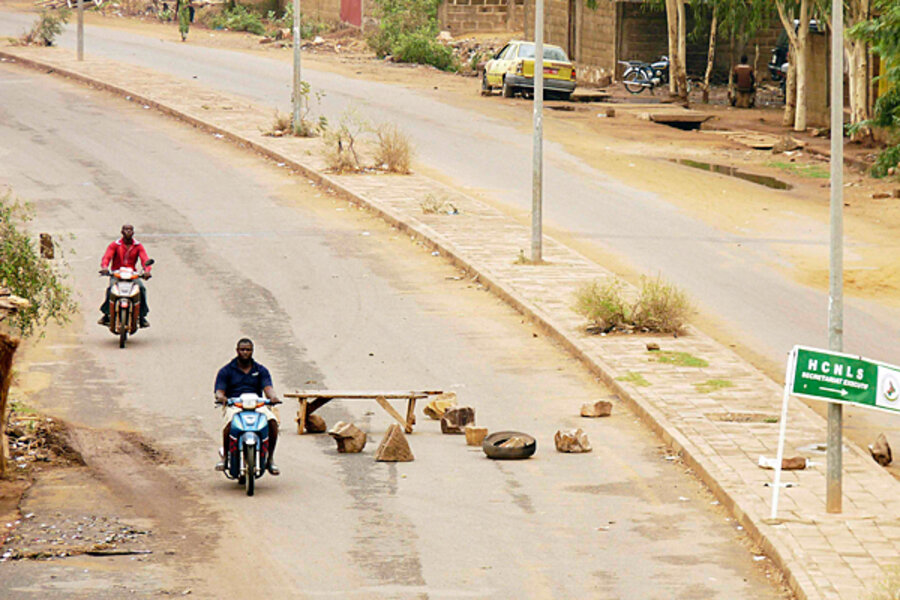Coup and counter-coup: Mali's military junta retains control of capital
Loading...
Fighting in Mali’s capital of Bamako broke out last night and deep into the early hours of Tuesday. Military commanders who led a March 22 coup to oust President Amadou Toumani Toure say that they have managed to keep control of all strategic points in the capital, including the airport, a major military base, and the state-owned television station, but heavy gunfire could be heard until dawn.
Coup leaders were forced under heavy diplomatic pressure to step down in favor of a civilian government, led by former Parliament speaker Dioncounda Traoré. But coup leader Capt. Amadou Haya Sanogo remains influential, and his troops have been carrying out arrests.
The most recent fighting seems to have sparked off when Captain Sanogo’s men attempted to arrest the leader of the “Red Berets,” the presidential guards who are thought to remain loyal to the former president.
"Elements from abroad, supported by some obscure forces within the country, carried out these attacks. Some of them have been arrested," a junta officer said in a television message, quoted by Reuters.
Even before the coup, Mali had been a country of major concern for Western diplomats and for defense analysts. With much of its territory straddling the Saharan desert and the more temperate Sahel region, Mali has long had difficulty maintaining effective control over its own lands and the nomadic people who live in its arid north. Such a vast uncontrolled territory has been seen by Europe, in particular, as a threat, since drug dealers, arms traffickers, and Islamists have increasingly used northern Mali as a safe haven, both for business and for revolution.
French and American military trainers have worked over the past five years to provide equipment and training for the poorly equipped Malian army. But with the March 22 coup, all joint-training missions have been cut off, and Mali has taken a turn from “fragile state” toward “failed state” status.
The coup was launched by Army mid-ranking soldiers complaining that the government of President Toure had failed to provide adequate food and ammunition in their fight against Tuareg rebels in the desert north. The coup was swift and successful, but as Sanogo and his men took control of the country’s capital down south, Tuareg rebels – apparently resupplied with arms and fresh troops fleeing the civil war in Libya – took advantage of the confusion and ousted the Malian military from bases across the north, an area roughly the size of France.
The result is a kind of cultural partition. Up north, in cities such as Timbuktu, Tuaregs and their apparent Islamist allies have now imposed their own version of Sharia law. Down south, Sanogo’s men appear to have control, but it is not clear whether the Malian army has either the manpower or the will to retake areas lost to the Tuareg rebels and Islamists.
Mali’s neighbors have watched the country’s disintegration with growing alarm. On Saturday, Sanogo – still apparently speaking for the government – rejected a proposal by the Economic Community of West African States (ECOWAS) to send in peacekeepers to Mali, as well as ECOWAS’s demands for elections within the next 12 months.
For the moment, calm has returned to Bamako, as heavy rains delay the likelihood of heavy fighting on Tuesday between the pro-coup army members and the Red Berets loyal to former President Toure.







